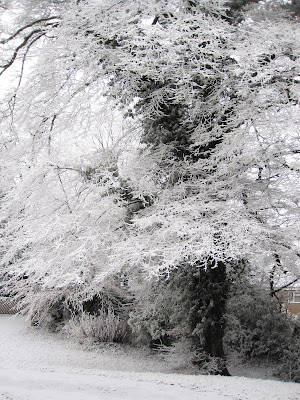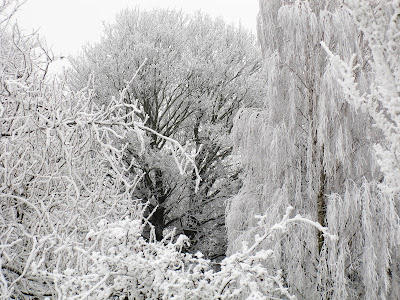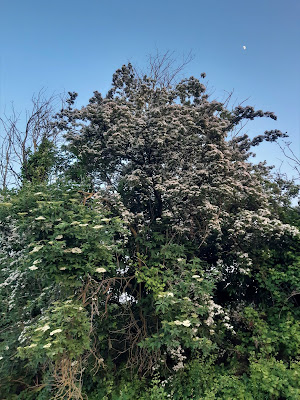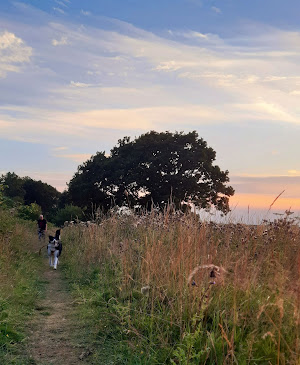The school I work at is in the process of relocating; at least, the primary classes are. On my first day working there, the bursar mentioned in passing that there was this move in the offing, inserting the words 'of course', as if somehow I should have known about it by osmosis. I asked where to, to be told 'no idea yet, could be anywhere in Bristol really'. And since I didn't have a car at that time, and hadn't driven for 20 years, and one of the main reasons I'd taken the job was because I could walk to it from my then home, I was a bit miffed I hadn't been told about it at interview stage. This was in 2007. The move has been a long time coming.
A lot has happened since then. For some reason, bursars are now known as school business managers, and following the derailment of my marriage, I acquired a car, plus a dog, which meant I no longer walked to work but drove so that I could get home more quickly to walk him. And years later my dog died, God love him, and now I have another, around whom my partner and I continue to arrange our work and transport.
Anyway, back to the school, which is on an unnamed road (something that caused issues when giving directions over the years). My last day there was supposed to be Monday, as I was having the day off on Tuesday to go to my graduation ceremony in Manchester. And it was very lovely that on this day, the magpies who throng the school's beautiful grounds left two feathers as a farewell gift.
But then it didn't get to be my last day, as the person currently holding the position of school business manager asked me to go in on Wednesday and Thursday too, as the woman I job share with is recuperating from an operation. So I said I could come in on the mornings of both of those days, but not all day because of the dog, and I might have to come in later than 8am on Thursday because of the rail strike and getting my partner to Cardiff, where he works, if there are no trains. And that was fine, or at least better than nothing. So in I went on Wednesday, and Laura and I watched the hatchling gulls who live on the roof.
And in the afternoon I went briefly to the shopping mall and failed to get my phone battery replaced, and then home to the dog. It was then I took a hilarious tumble in the back garden. Well, it would have been hilarious if anyone had seen it, but no one did - at least, I don't think they did, as no one called 'Are you OK?' over the fence - for which I was quite thankful, as it would have been rather embarrassing, and also not thankful, as, if I'd been badly hurt with my phone battery on the blink, I could have been there for some time. It happened like this. The dog needed a pee, so I took her out on an extendable lead because the hedging plants we planted in May don't yet constitute a hedge and the foxes have dug a tunnel under the chain link fence, which she could quite plausibly get through herself and then fail to return. At this point, she saw a cat and belted after it, and I grabbed the hand rail to steady myself, but the hand rail turned out to have been stuck in earth rather than concrete and didn't withstand the force of border collie after cat, and I went flying off the side of the steps and half way across the garden with the lead in one hand and the hand rail in the other, landing on my ribs. I don't really blame the dog - most of what the previous owners installed in our house was bodged, and she was only doing her job - but at the same time, I didn't raise her to be an ailurophobe.
Which is a long-winded way of saying that I didn't go back to the primary school site on the Thursday (and the Northerner missed a day's work) because of the pain in my ribs and needing to rest before I winced my way into town on Friday to run my poetry group, so I didn't actually get to say goodbye to it, knowing it was the last time I'd be there. So to make up for it, here's a post with some photos I've unearthed whilst reclining on the Settee of Suffering, taken over the 16 years I worked there. Hopefully they give an inkling of what a privilege it was to work in such a special location.
There have been snow days over the years, but rarely on the days I worked for some reason, so I was lucky to capture our beautiful trees covered in the stuff.
And here's some yarrow blooming one day in early December some years ago at the edge of our playing field that fronts onto the same road.




.jpg)








.jpg)




































































.jpg)








